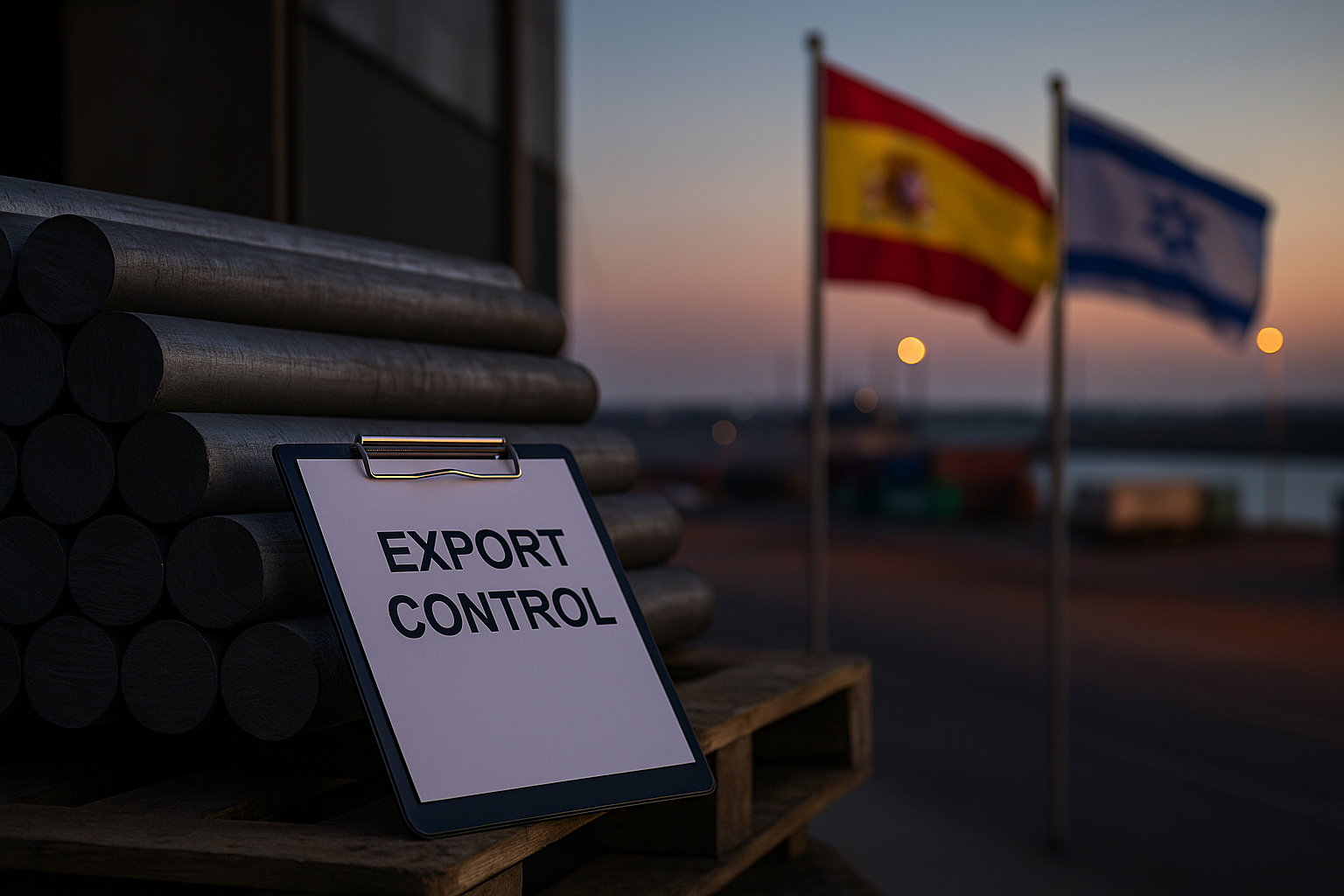Spain Probes Sidenor Over Alleged Breach of Israel Sales Ban
By Tredu.com • 10/24/2025
Tredu

What happened, and why it matters
Spain’s High Court opened a criminal investigation into Sidenor for allegedly selling steel to an Israeli defense affiliate, a potential breach of Spain’s Israel sales ban that could test Europe’s tightening export-control regimes. Judge Francisco de Jorge is leading the probe, which targets CEO Jose Antonio Jainaga Gomez and two other executives on counts that include suspected smuggling and complicity in crimes against humanity or genocide. Executives have been summoned to testify on November 12.
The alleged deal at the center of the case
According to the court’s statement, Sidenor sold steel to Israel Military Industries, a subsidiary of Elbit Systems, without the required government authorization or proper registry. The filing argues the executives knew the buyer manufactured heavy and light weapons and that the material would be used to produce arms. Elbit Systems declined to comment.
Sidenor’s response so far
Sidenor said it had referred the matter to its legal counsel and would provide the court with all available information. The company also stated it suspended all commercial relations with Israel on July 1, following the Spanish government’s earlier decision to halt such contracts. That timeline will likely be scrutinized as investigators assess whether any deliveries or commitments overlapped with the tightened rules.
The legal footing in Spain
Spain has progressively stiffened controls tied to the Gaza conflict. In September, Madrid banned ships and aircraft carrying weapons or jet fuel to Israel from Spanish territory, and reinforced a prohibition on Spanish firms selling arms or materials used to make them to Israel. The country, which recognized a Palestinian state last year, has repeatedly criticized Israel’s campaign and has kept restrictions in place even after an October 10 ceasefire took effect. The Sidenor probe is one of the first tests of these measures.
How the investigation began
The High Court said the case stems from a complaint filed in July by the association of the Palestinian community in Catalonia. Spain’s judiciary has taken on a larger role in scrutinizing alleged sanctions or export-control breaches, reflecting a broader European pattern in which non-governmental organizations initiate complaints that then move into formal investigations.
Compliance risk for industrial suppliers
For industrial groups, the episode underscores how dual-use inputs can trigger scrutiny when buyers operate in defense supply chains. Steel grades used for weapons systems, munitions cases, or armored components can fall under export regimes if end use is military. Prosecutors are likely to review Sidenor’s due-diligence procedures, beneficial-owner checks, contract language on end use, and whether internal controls flagged the buyer’s defense links. Firms operating in high-risk jurisdictions often adopt enhanced screening, periodic buyer recertifications, and shipment holds pending license verification. This case will be studied across Europe’s metals and machinery sectors.
Potential penalties and scenarios
If prosecutors ultimately bring charges and the court finds a breach, penalties could include fines, disqualification from public contracting, or sanctions for responsible individuals under Spain’s criminal code. Separately, any adverse finding could expose the company to civil claims from stakeholders. A different outcome is also possible: the investigation could conclude there was no breach if records show compliant exports before the ban, or if the goods did not meet the legal definition of controlled inputs. For markets and counterparties, the range of outcomes warrants contingency planning.
Impact on Spain–Israel commercial ties
Spain’s measures have already cooled bilateral trade in sensitive categories. The High Court’s action against a prominent steelmaker may prompt additional companies to suspend deliveries to Israeli defense-linked firms until licensing clarity improves. Some suppliers could reroute sales to third countries, although re-exports can still be captured by end-use controls. Israeli contractors may diversify sourcing to jurisdictions with less restrictive frameworks, but they face logistical and certification hurdles that make rapid substitution difficult.
What Sidenor’s customers and lenders will watch
Customers will seek assurances on continuity of supply, while lenders and insurers will focus on legal exposure and reputational risk. Expect questions on the timing of any contracts with Israel Military Industries, the volumes involved, and whether shipments occurred after Spain reinforced prohibitions. Boards typically demand a rapid internal review, outside counsel validation, and, if needed, enhancements to trade-compliance programs, including centralized license tracking and escalation protocols.
Policy signals beyond this case
The government’s stance suggests Spain will maintain a strict posture on exports that could support Israel’s military operations. Whether the policy softens will depend on developments in Gaza and coordination with EU partners. For Brussels, the case highlights the challenge of harmonizing national restrictions while avoiding loopholes that shift trade across borders within the bloc. The Sidenor probe could become a template for future enforcement actions if authorities see evidence that firms sought to circumvent an Israel sales ban, or failed to update controls quickly enough as rules evolved.
What to watch next
Key milestones include the November 12 testimonies, any interim court orders on document production, and potential requests for cooperation from Israeli authorities. Watch also for statements from Spain’s industry or foreign ministries that clarify licensing interpretations, plus any moves by Sidenor to ring-fence operations, adjust guidance, or revise supplier codes. For Tredu readers, the bottom line is that regulatory momentum is firmly on the side of tighter controls, and that risk management around end use has become a board-level priority.

How to Trade Like a Pro
Unlock the secrets of professional trading with our comprehensive guide. Discover proven strategies, risk management techniques, and market insights that will help you navigate the financial markets confidently and successfully.


